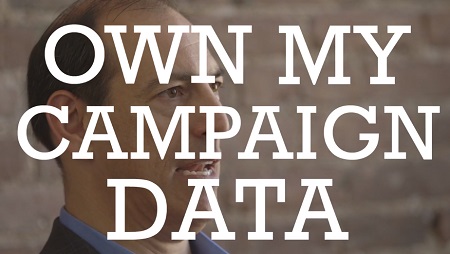The rise of web giants such as Facebook and Google have created a difficult problem for marketers, as it places customer data behind ‘walled gardens’ that they cannot access, according to a new report.
The study, commissioned by independent ad server Flashtalking, has two components: a quantitative survey fielded by Industry Index and qualitative follow-up interviews conducted by management consultant Deloitte.
The research quizzed over 180 brand and agency buyers, shining a light on the disconnect between what clients want from their advertising platforms and what they can expect to get from the predominant “walled garden” platforms.
“As walled gardens like Facebook and Google rapidly expand, marketers are awkwardly navigating between competing interests. On the one hand, they need the scale walled gardens provide, but on the other, they want more and more to maintain control over their own data, to consistently leverage it for more personalized advertising across every channel and inventory source,” said John Nardone, Chief Executive Officer of Flashtalking. “What we found fascinating in this research, is that despite the very clear disconnect between desire and actuality, certain trade-offs have been allowed to stand. These include sacrificing data ownership and transparency for scale and access; or even accepting some inherent level of media bias to achieve that scale.”
With 58% stating it is their most important criteria, the study identifies data ownership and access are top priorities for marketers, nearly all of whom go on to note the particular importance of applying their data assets across media sources and creative executions to achieve 1-to-1 personalization — and being able to do so at scale. Follow-up interviews with the marketers reveal anecdotally that data has become marketers’ most prized asset and integral to achieving their own broader marketing vision. Yet, they also prioritize scale of execution, so they face a very real conflict.
Also not surprisingly, the study found that 95% of advertisers think it’s important or very important to have data transparency at a user level; 92% believe it’s important or very important that viewability, brand safety and fraud measurement should come from a source not affiliated with inventory; and 81% believe that it’s important or very important that they have exclusive ownership of campaign data.
“As we talked to these marketers, it was clear that perceived strengths of scale comes with major costs. For marketers that cost can be the loss of control of their most precious asset — their data,” continued Nardone.
“While many marketers continue with business as usual, working with the walled gardens, we did find that some have begun asking hard questions around access and use of their data and how much they will have to compromise their vision and goals for personalization in order to access the scale of the walled gardens,” said Ed See, Principal at Deloitte Consulting.
In a follow-up interview from the survey, a chief information officer at a large brand summed up the marketers’ paradox: “The same tools that excite CMOs present CIOs with some difficult challenges. These platforms basically ask us to give up control of our data, and that’s a huge issue for someone whose job it is to manage that data.”
To read the white paper and review detailed findings, click here
